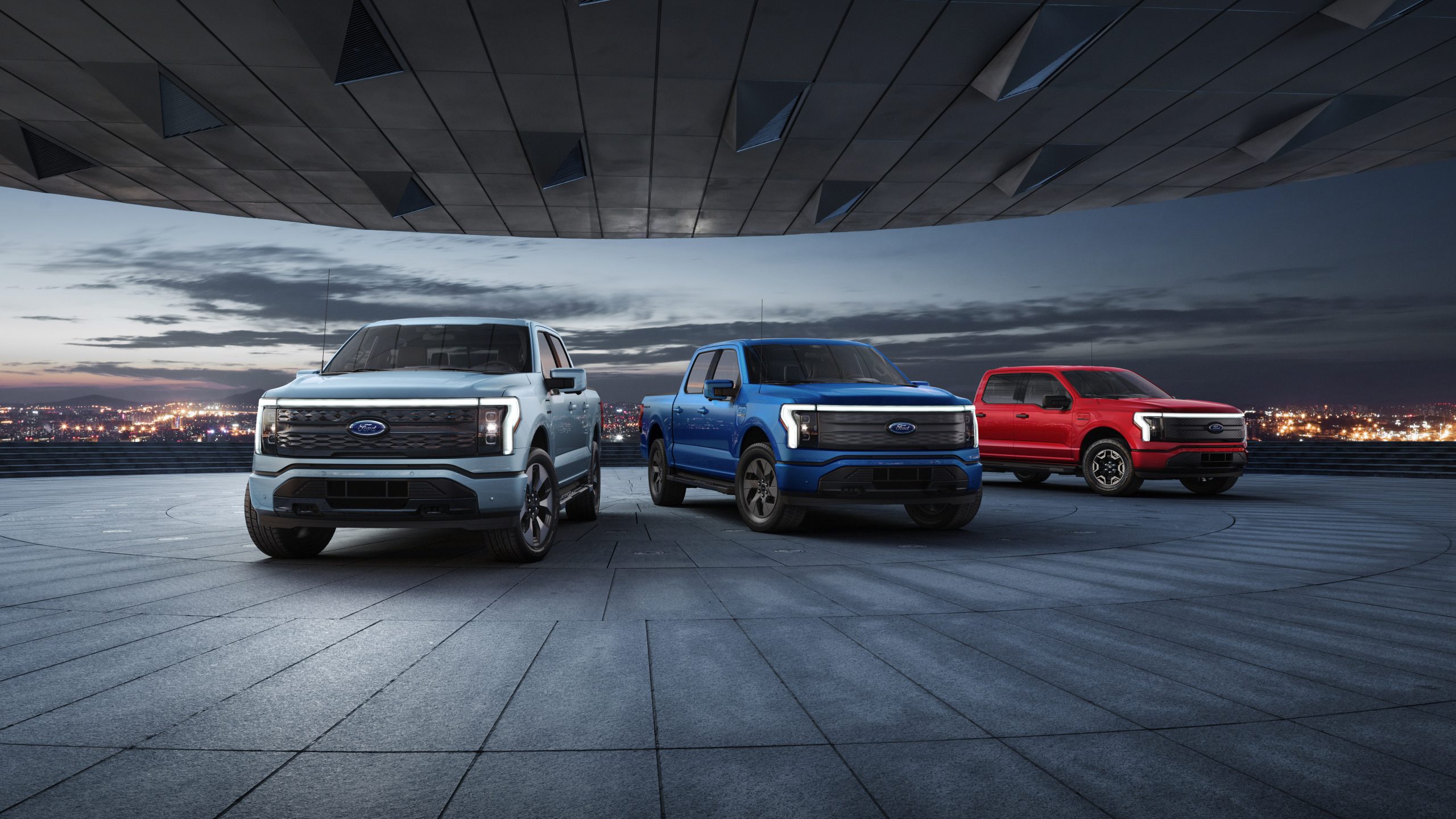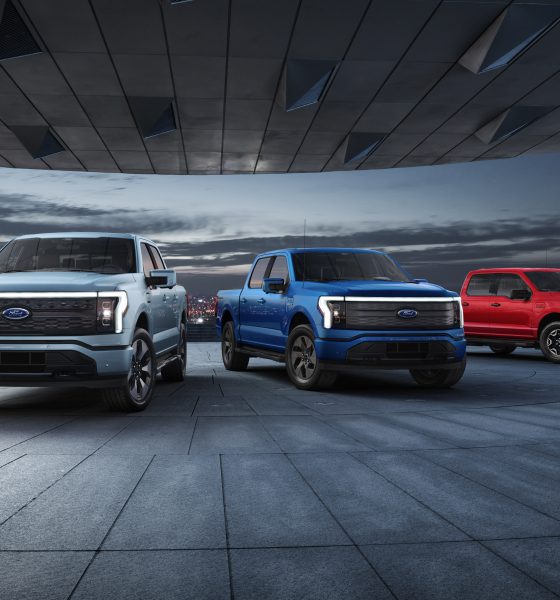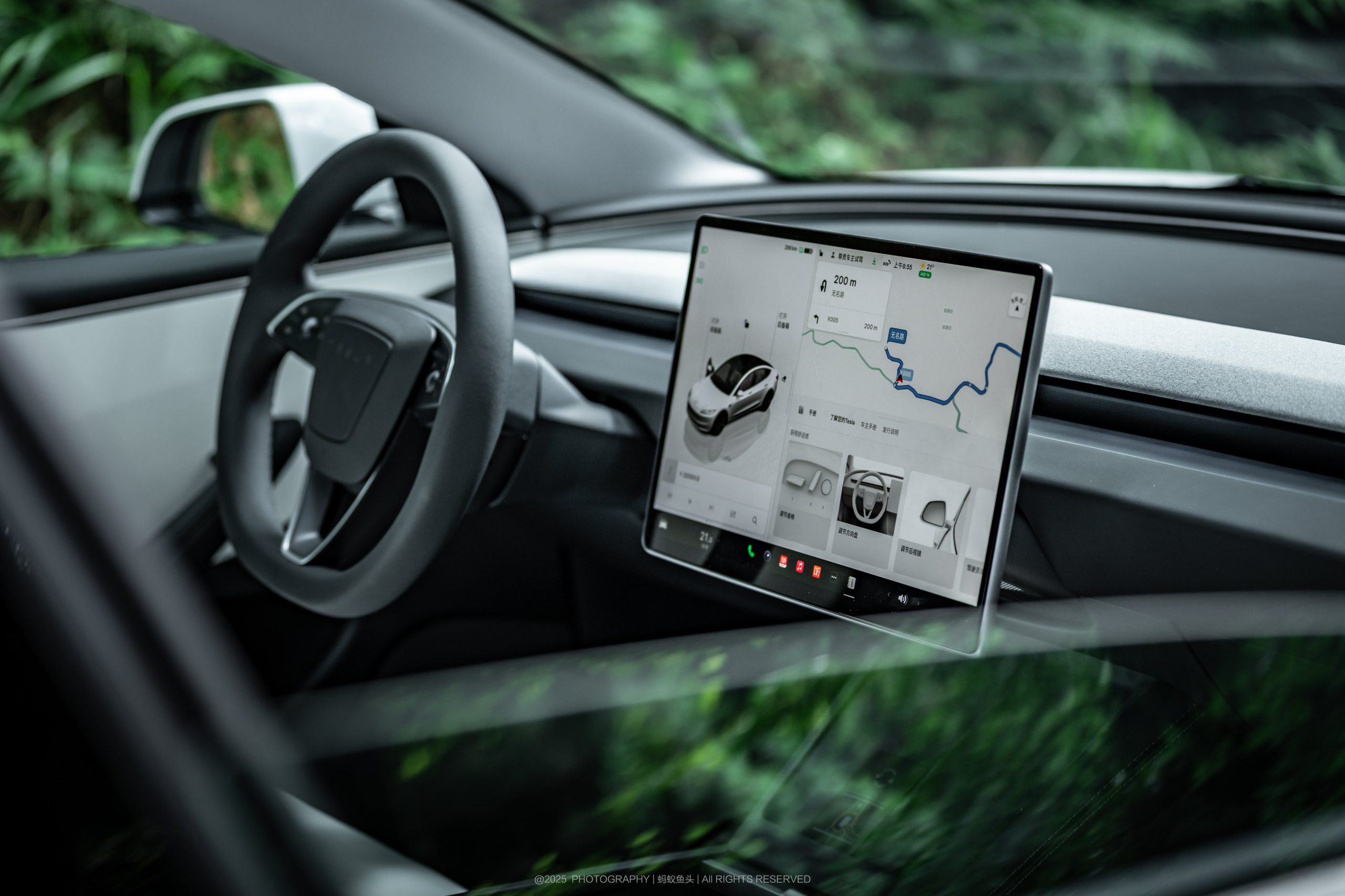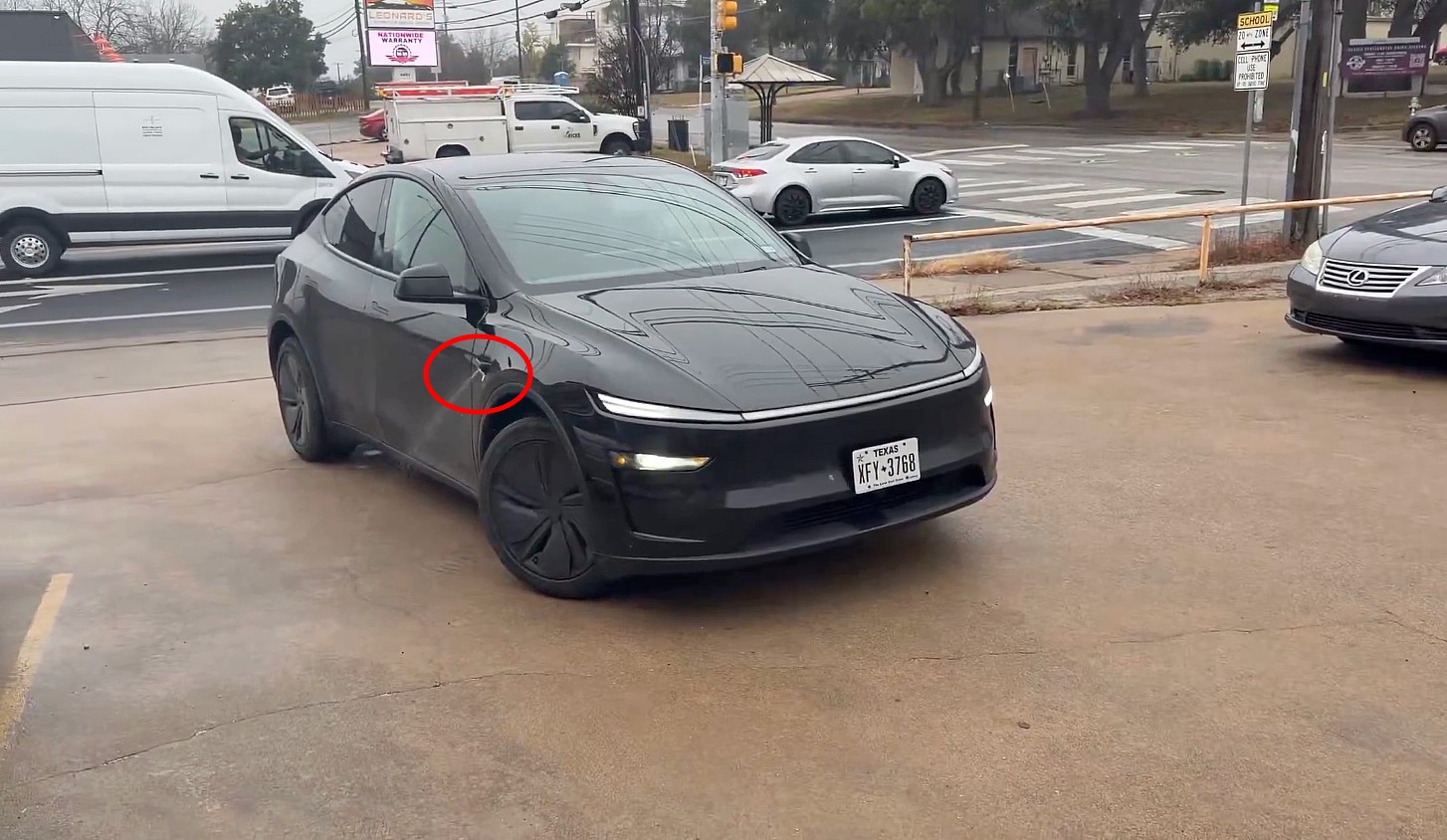

News
Ford doubles EV goal for 2023 and has a new semiconductor partner to help
Ford made several leaps forward in its push toward electric vehicles today. Ford CEO Jim Farley stated that the automaker has now doubled its electric vehicle production goals to 600,000 units by 2023. Ford also signed a non-binding contract with GlobalFoundries, a global leader in feature-rich semiconductor chip manufacturing.
CEO Jim Farley said yesterday that Ford would be increasing its EV production goal from 300,000 to 600,000 over the next two years, aiming to solidify the manufacturer’s position as #2 in the U.S. automotive industry behind Tesla. Farley expects the Mustang Mach-E, F-150 Lightning, and E-Transit van to be the three contributors to Ford’s imminently-expanding production goals.
“The demand is so much higher than we expected,” Farley said in regards to the growth of Ford’s electric lineup. “It’s a really new experience for this big company, trying to be agile. We had to approach it very differently than we’ve done capacity planning.”
We aim to become the 2nd biggest EV producer within the next couple years.
Then as the huge investments we’re making in EV and battery manufacturing come onstream and we rapidly expand our EV lineup, our ambition is for @Ford to become the biggest EV maker in the world.
— Jim Farley (@jimfarley98) November 18, 2021
Ford’s plans to be second-in-command of the U.S. EV sector could be challenged by General Motors, who has solidified plans to sell at least 1 million EVs by 2025. However, GM’s popular Bolt EV will be sidelined for the remainder of the year. GM’s GMC brand will have the Hummer EV releasing in the coming months to contribute, but a spokesman for the company said that General Motors was already approaching 300,000 sales globally through the first three quarters of 2021. Most of this could be attributed to the Chinese market, where GM’s joint venture with Wuling and SAIC has contributed a significant portion of these sales with the HongGuang Mini EV.
Ford’s plan will also have to involve strategies to alleviate any potential bottlenecks that could arise from the chip shortage. Ford signed a non-binding agreement with GlobalFoundries to develop “a strategic collaboration to advance semiconductor manufacturing and technology development within the United States, aiming to boost chip supplies for Ford and the U.S. automotive industry,” the company’s said. The development of collaborative semiconductor chip production efforts could bring in solutions for ADAS, battery management systems, and in-vehicle networking for automated and connected EVs.
Ford F-150 Lightning unveiled: Price, Release date, Range, Features and more
“It’s’ critical that we create new ways of working with suppliers to give Ford – and America – greater independence in delivering the technologies and features our customers will most value in the future,” Farley said about the partnership. “This agreement is just the beginning, and a key part of our plan to vertically integrate key technologies and capabilities that will differentiate Ford far into the future.”
Semiconductor shortages have plagued many automakers for much of 2021, except for Tesla, which has developed in-house alternatives. The auto industry will produce roughly 7.7 million fewer automobiles this year compared to 2020, according to AlixPartners. The shortage will cost the industry around $210 billion in revenue.
I’d love to hear from you! If you have any comments, concerns, or questions, please email me at joey@teslarati.com. You can also reach me on Twitter @KlenderJoey, or if you have news tips, you can email us at tips@teslarati.com.

Elon Musk
Tesla to increase Full Self-Driving subscription price: here’s when

Tesla will increase its Full Self-Driving subscription price, meaning it will eventually be more than the current $99 per month price tag it has right now.
Already stating that the ability to purchase the suite outright will be removed, Tesla CEO Elon Musk said earlier this week that the Full Self-Driving subscription price would increase when its capabilities improve:
“I should also mention that the $99/month for supervised FSD will rise as FSD’s capabilities improve. The massive value jump is when you can be on your phone or sleeping for the entire ride (unsupervised FSD).”
This was an expected change, especially as Tesla has been hinting for some time that it is approaching a feature-complete version of Full Self-Driving that will no longer require driver supervision. However, with the increase, some are concerned that they may be priced out.
$99 per month is already a tough ask for some. While Full Self-Driving is definitely worth it just due to the capabilities, not every driver is ready to add potentially 50 percent to their car payment each month to have it.
While Tesla has not revealed any target price for FSD, it does seem that it will go up to at least $150.
I should also mention that the $99/month for supervised FSD will rise as FSD’s capabilities improve.
The massive value jump is when you can be on your phone or sleeping for the entire ride (unsupervised FSD). https://t.co/YDKhXN3aaG
— Elon Musk (@elonmusk) January 23, 2026
Additionally, the ability to purchase the suite outright is also being eliminated on February 14, which gives owners another reason to be slightly concerned about whether they will be able to afford to continue paying for Full Self-Driving in any capacity.
Some owners have requested a tiered program, which would allow people to pay for the capabilities they want at a discounted price.
Unsupervised FSD would be the most expensive, and although the company started removing Autopilot from some vehicles, it seems a Supervised FSD suite would still attract people to pay between $49 and $99 per month, as it is very useful.
Tesla will likely release pricing for the Unsupervised suite when it is available, but price increases could still come to the Supervised version as things improve.
This is not the first time Musk has hinted that the price would change with capability improvements, either. He’s been saying it for some time. In 2020, he even said the value of FSD would “probably be somewhere in excess of $100,000.”
The FSD price will continue to rise as the software gets closer to full self-driving capability with regulatory approval. It that point, the value of FSD is probably somewhere in excess of $100,000.
— Elon Musk (@elonmusk) May 18, 2020
News
Tesla starts removing outright Full Self-Driving purchase option at time of order

Tesla has chosen to axe the ability to purchase Full Self-Driving outright from a select group of cars just days after CEO Elon Musk announced the company had plans to eliminate that option in February.
The company is making a clear-cut stand that it will fully transition away from the ability to purchase the Full Self-Driving suite outright, a move that has brought differing opinions throughout the Tesla community.
Earlier this week, the company also announced that it will no longer allow buyers to purchase Full Self-Driving outright when ordering a pre-owned vehicle from inventory. Instead, that will be available for $99 per month, the same price that it costs for everyone else.
The ability to buy the suite for $8,000 for a one-time fee at the time of order has been removed:
NEWS: Tesla no longer allows buyers to purchase FSD outright in the U.S. when ordering a pre-owned vehicle directly from inventory. Tesla now gives you the option to either subscribe for $99/month, or purchase FSD outright after taking delivery (available until February 14th). pic.twitter.com/1xZ0BVG4JB
— Sawyer Merritt (@SawyerMerritt) January 23, 2026
This is a major move because it is the first time Tesla is eliminating the ability to purchase FSD outright for one flat fee to any of its vehicles, at least at the time of purchase.
It is trying to phase out the outright purchase option as much as it can, preparing people for the subscription-based service it will exclusively offer starting on February 14.
In less than a month, it won’t be available on any vehicle, which has truly driven some serious conversation from Tesla owners throughout the community.
There’s a conflict, because many believe that they will now lose the ability to buy FSD and not pay for it monthly, which is an attractive offer. However, others believe, despite paying $8,000 for FSD, that they will have to pay more money on top of that cost to get the unsupervised suite.
Additionally, CEO Elon Musk said that the FSD suite’s subscription price would increase over time as capabilities increase, which is understandable, but is also quite a conflict for those who spent thousands to have what was once promised to them, and now they may have to pay even more money.
News
Tesla Robotaxi has a highly-requested hardware feature not available on typical Model Ys
These camera washers are crucial for keeping the operation going, as they are the sole way Teslas operate autonomously. The cameras act as eyes for the car to drive, recognize speed limit and traffic signs, and travel safely.

Tesla Robotaxi has a highly-requested hardware feature that is not available on typical Model Ys that people like you and me bring home after we buy them. The feature is something that many have been wanting for years, especially after the company adopted a vision-only approach to self-driving.
After Tesla launched driverless Robotaxi rides to the public earlier this week in Austin, people have been traveling to the Lone Star State in an effort to hopefully snag a ride from one of the few vehicles in the fleet that are now no longer required to have Safety Monitors present.
BREAKING: Tesla launches public Robotaxi rides in Austin with no Safety Monitor
Although only a few of those completely driverless rides are available, there have been some new things seen on these cars that are additions from regular Model Ys, including the presence of one new feature: camera washers.
With the Model Y, there has been a front camera washer, but the other exterior “eyes” have been void of any solution for this. For now, owners are required to clean them manually.
In Austin, Tesla is doing things differently. It is now utilizing camera washers on the side repeater and rear bumper cameras, which will keep the cameras clean and keep operation as smooth and as uninterrupted as possible:
🚨 Tesla looks to have installed Camera Washers on the side repeater cameras on Robotaxis in Austin
pic.twitter.com/xemRtDtlRR— TESLARATI (@Teslarati) January 23, 2026
Rear Camera Washer on Tesla Robotaxi pic.twitter.com/P9hgGStHmV
— TESLARATI (@Teslarati) January 24, 2026
These camera washers are crucial for keeping the operation going, as they are the sole way Teslas operate autonomously. The cameras act as eyes for the car to drive, recognize speed limit and traffic signs, and travel safely.
This is the first time we are seeing them, so it seems as if Safety Monitors might have been responsible for keeping the lenses clean and unobstructed previously.
However, as Tesla transitions to a fully autonomous self-driving suite and Robotaxi expands to more vehicles in the Robotaxi fleet, it needed to find a way to clean the cameras without any manual intervention, at least for a short period, until they can return for interior and exterior washing.









